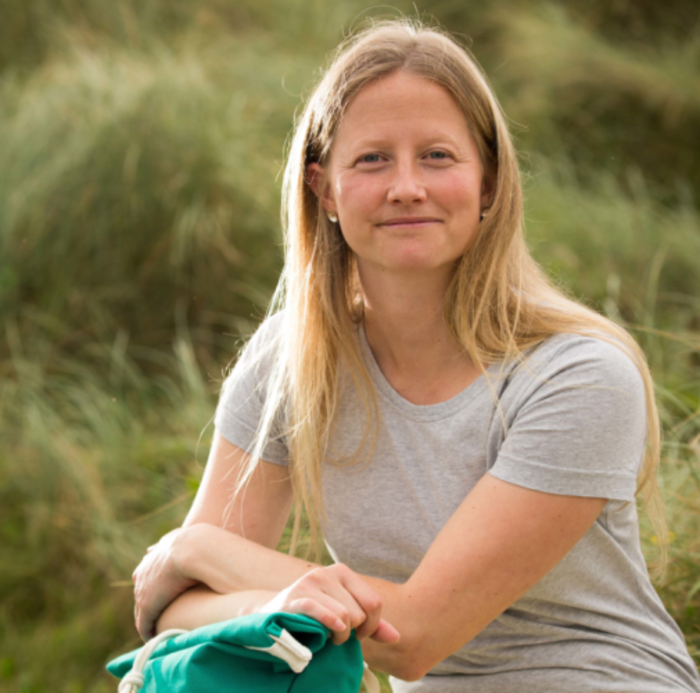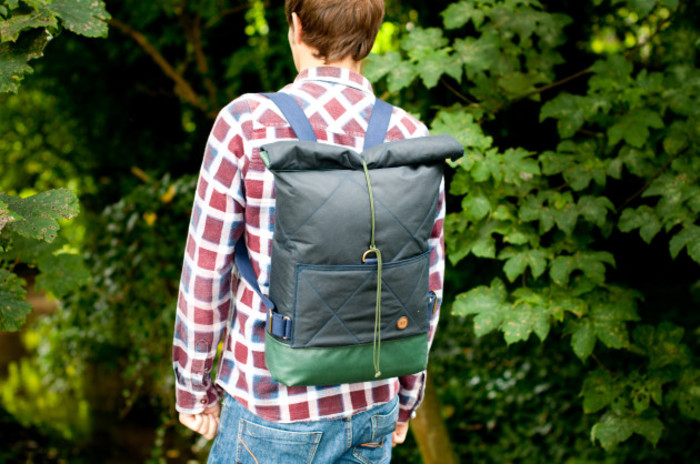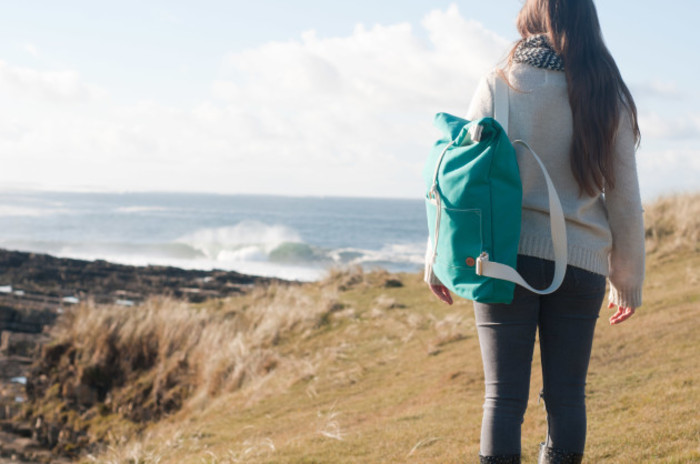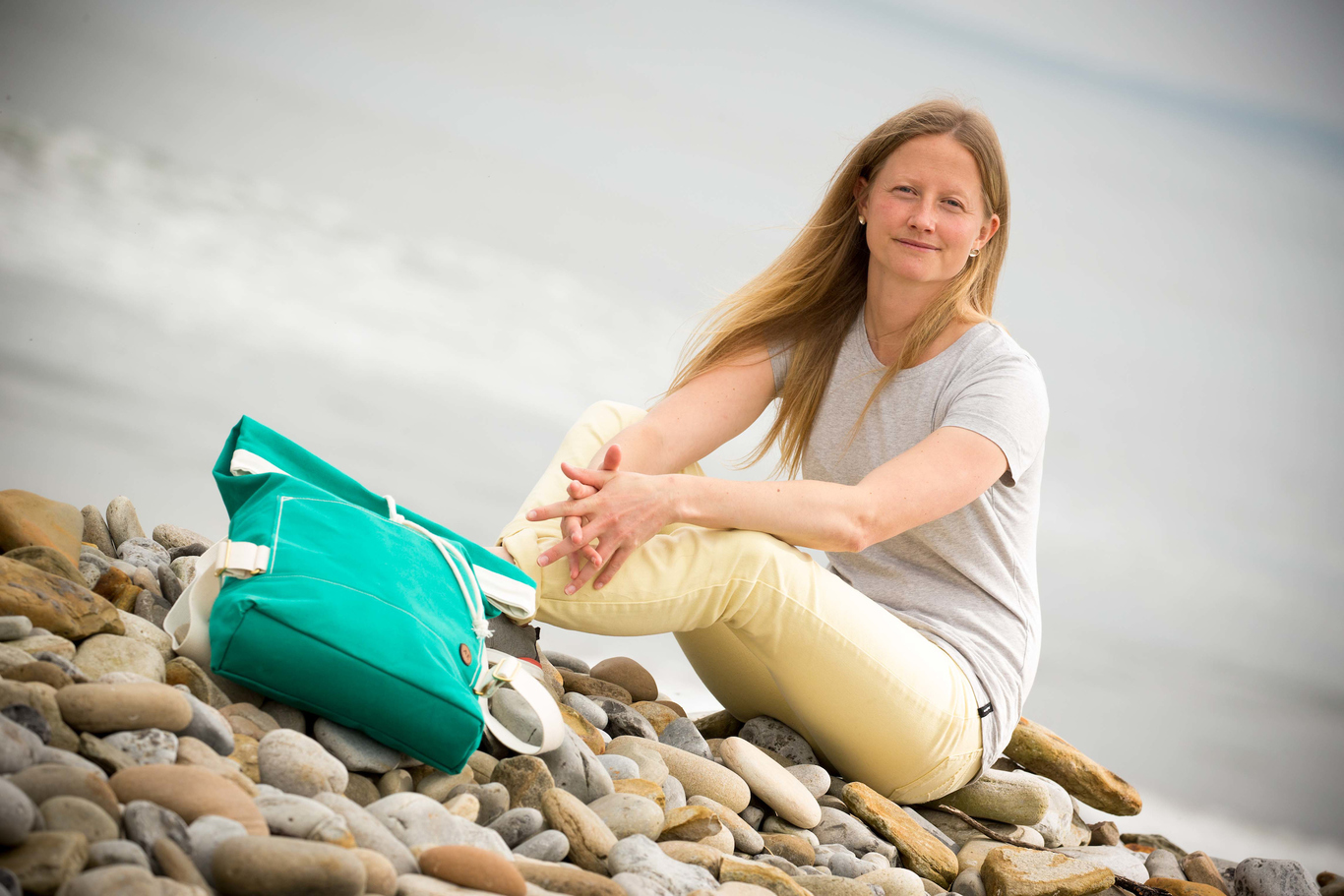'Being an entrepreneur is lonely. It's a bit like surfing - instinctive and solitary'
This former champion surfer started her company with YouTube sewing tutorials.
FOR MOST OF my teens I surfed competitively. I was Irish champion a few times over and also won bronze and silver medals at European level.
I stopped competing in my early 20s, but I grew up surfing with my family in Sligo so I’ll still be a surfer for life.
In college, I did a bachelor’s degree in product design in the University of Limerick and then worked for two years in the Irish design industry and the retail sector.
I learned a lot about how retail works and the margins shops expect and how to develop a good relationship with a designer from a shop’s perspective.
That was good, but of course I didn’t know how useful that was going to be to me a few years later.
To get my design career back on track, I went to the Netherlands to study for a masters in integrated product design at the University of Delft.
It was an amazing education in the strategic side of design, such as branding and positioning of product within a market, and has really informed what I’m doing now.
I was really fortunate that I got to do a lot of research in the safe surrounds of university before coming out into the real world and graduating with a thesis that was the development of this brand I have now – the Atlantic Equipment Project.
 Ashleigh Smith
Ashleigh Smith
Natural progression
When I went over to the Netherlands for college, I didn’t expect to be coming back to Ireland to launch a company. I went over there just knowing that I wanted to get back into tangible design, because I hadn’t been in that area when I was working in retail.
I knew I wanted to work in the outdoor-accessories industry and design those kind of products, so I thought I would go and work for a company in that area as a designer.
For my thesis, I was working on a single product – a bodyboard bag – that I thought I would end up licensing and selling on.
I had a few great professors who were interested in strategic design, and they pushed me to develop the brand around the product. As the brand emerged and evolved, I found that I loved that process and it was something I was passionate about.
I knew I wanted to work for a really cool company, so I thought, ‘Why not start my own?’

YouTube sewing lessons
There really was a lot of education packed into my thesis. It was a great because it pushed me to bring the idea of the bodyboard bag to a certain level and to actually make it, since I needed a presentable prototype.
There was nobody around that I could get to make it, so I bought an old second-hand sewing machine for €25 in the Netherlands, carried it home and taught myself to sew on YouTube.
That was three and a half years ago, and it took a lot of late nights trying to figure it out. But if you have an engineering kind of brain, you can work out sewing. It is very mechanical – not rocket science.
I’d say it took me a month and a half of just plugging away and cutting fabric. You have to learn how fabric works, how thread works, different fabric weight, thread strength and things like that.
So I made the bag and morphed the project into a number of other additional bags that would support the main product. I just ended up making loads of bags for six months.
Back to Ireland
I graduated from that masters in September 2013 and came home to Ireland with this really robust brand identity and an initial product collection – so I decided I was going to give it a go.
This was all done on a shoestring budget – if even a shoestring – mostly because I had no other option. Now that I’m two years into it, I’m so glad that’s how it all began. I’m in a very fortunate position now not to owe anyone any money.
All I really had was that sewing machine. But then in order to really launch the product properly, I actually needed an industrial machine that would make a big difference in the weight of fabric I could use.
That was €600, so it wasn’t too costly, but I also needed a little work space and luckily there was an enterprise centre in Strandhill that had a small little office that was available for modest rent.
Getting my own workshop was such a big moment for me. It meant I was able to set up the fabric rolls, have the industrial sewing machine there and a cutting table – it just felt class.
Ups and downs
Anytime I launch a new product is a real high for me. We have released three new product collections since the beginning, and any time we do, I get a photographer to take product shots of them out in an environment or with models.
That’s really exciting for me because I get to see them in a different light than my own workshop. It’s always a mission to get a new design finished, so that’s like ‘end is in sight’ moment.

Getting into the Irish Design Shop in Dublin and getting my first sale was another big milestone. It was validation of what I had been working towards and meant someone else, other than myself, thought it’s something other people would want.
Then we sold 100 bags through the website, then another 200 – all of those are important milestones. In the beginning I didn’t appreciate how big a deal it was, but now I celebrate those moments because they’re what you have to keep you going through the low points.
We haven’t had a really low moment yet. I haven’t been told “no”, or “that’s not for us” or “we don’t like it”. I’m sure they will happen, but I haven’t had them yet.
So the lows I’ve had are more general, such as the loneliness of being an entrepreneur. That’s hard. Anyone will tell you that it’s a lonely business and it’s so true.
I have great friends and family, but nobody is in my brain all the time, so nobody knows 100% of what’s going on in the business and that’s hard.
I suppose it’s like surfing. Surfing is a very individual sport and the community around it is very supportive and fun, but what you’re actually doing is very solitary.
You are alone in the surf and it’s a challenging environment, with everything changing quite quickly – once there’s a wave it’s all go, go, go. It’s very instinctive and you’re making decisions really quickly.
That’s all stuff that translates to running a small business: risk management, mitigating problems and managing what’s in front of you. Like surfing, when you’re managing a small business you need to be self-reliant and also rely on your gut quite a lot.
Ashleigh Smith is the founder of the Atlantic Equipment Project. This article was written in conversation with Killian Woods as part of a series on unlikely entrepreneurs.
If you want to share your opinion, advice or story, email opinion@fora.ie.






